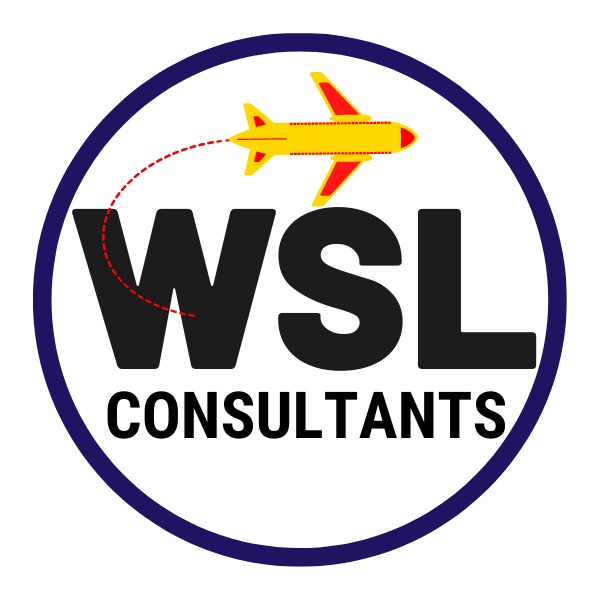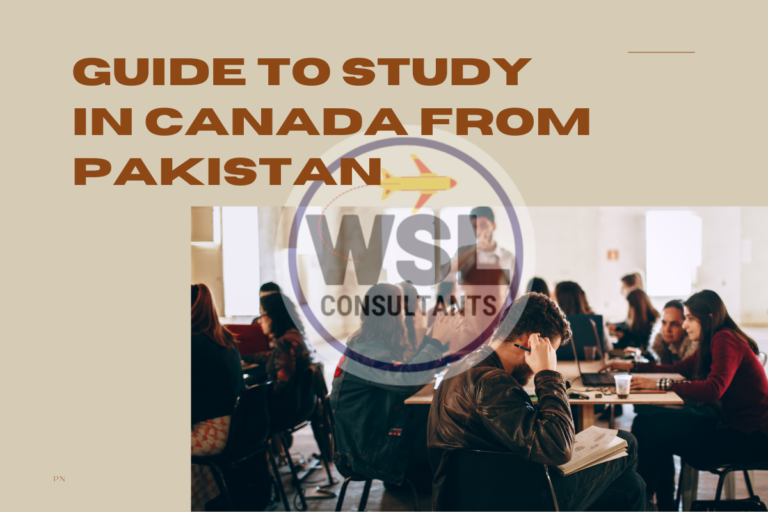How to Immigrate to Canada
Table of Contents
- Introduction
- Understanding Canadian Immigration System
- 2.1 Canadian Immigration Categories
- 2.2 Express Entry System
- 2.3 Provincial Nominee Program (PNP)
- Eligibility Criteria for Canadian Immigration
- 3.1 Language Proficiency
- 3.2 Educational Qualifications
- 3.3 Work Experience
- 3.4 Proof of Funds
- The Express Entry Process
- 4.1 Creating an Express Entry Profile
- 4.2 Comprehensive Ranking System (CRS)
- 4.3 Invitation to Apply (ITA)
- The Provincial Nominee Program (PNP) Application Process
- 5.1 Provincial Nominee Program Streams
- 5.2 Applying for a Provincial Nomination
- 5.3 Express Entry and Provincial Nominee Program (PNP) Combined Pathway
- Family Sponsorship
- 6.1 Spousal Sponsorship
- 6.2 Parent and Grandparent Sponsorship
- 6.3 Dependent Children Sponsorship
- Studying in Canada and Pathways to Permanent Residence
- 7.1 Study Permits
- 7.2 Post-Graduation Work Permit (PGWP)
- 7.3 Canadian Experience Class (CEC)
- How to Prepare for Immigration
- 8.1 Language Proficiency Tests
- 8.2 Educational Credential Assessment (ECA)
- 8.3 Skill Development and Upgrading
- The Role of Immigration Consultants and Lawyers
- 9.1 Choosing the Right Immigration Representative
- 9.2 Avoiding Immigration Fraud
- Settling in Canada
- 10.1 Finding Accommodation
- 10.2 Navigating Canadian Culture
- 10.3 Employment Resources
- Conclusion
Introduction
Immigrating to Canada is a dream for many individuals seeking a better quality of life, career opportunities, and a diverse cultural experience. Canada is known for its inclusive society, strong economy, and excellent healthcare and education systems. However, the immigration process can be complex and requires careful planning and understanding of the different pathways available. In this article, we will explore the various ways to immigrate to Canada, the eligibility criteria, application processes, and important tips for a successful immigration journey.
Understanding Canadian Immigration System
Canadian Immigration Categories
Canada offers various immigration pathways, each designed to cater to different individuals’ needs and qualifications. The main categories include Economic Class, Family Class, and Refugee Class. Economic Class immigrants are selected based on their ability to contribute economically to the country, while Family Class immigrants are sponsored by a close family member living in Canada. Refugee Class immigrants are individuals seeking refuge due to fear of persecution in their home country.
Express Entry System
The Express Entry system is one of the most popular pathways for skilled workers to obtain permanent residence in Canada. It manages applications for three federal economic immigration programs: the Federal Skilled Worker Program (FSWP), the Federal Skilled Trades Program (FSTP), and the Canadian Experience Class (CEC).
Provincial Nominee Program (PNP)
The Provincial Nominee Program (PNP) allows Canadian provinces and territories to nominate individuals for immigration based on their specific economic and labor market needs. Each province has its own streams and criteria for selecting candidates.
Eligibility Criteria for Canadian Immigration
Language Proficiency
Applicants for Canadian immigration must demonstrate proficiency in English or French. Language proficiency is assessed through standardized tests such as IELTS or CELPIP for English and TEF for French.
Educational Qualifications
Candidates are evaluated based on their educational qualifications. Points are awarded for completed educational programs, with higher points for post-secondary degrees and diplomas.
Work Experience
Having skilled work experience is crucial for immigration to Canada. Applicants are awarded points based on the number of years of full-time work experience in a skilled occupation.
Proof of Funds
Candidates must show that they have sufficient funds to support themselves and their family members in Canada. This is to ensure that newcomers can settle and integrate into Canadian society without financial strain.
The Express Entry Process
Creating an Express Entry Profile
To be considered for Express Entry, candidates must create an online profile detailing their personal information, education, work experience, language proficiency, and other relevant details.
Comprehensive Ranking System (CRS)
The CRS is a points-based system used to rank candidates in the Express Entry pool. Factors such as age, education, work experience, language proficiency, and adaptability are taken into account.
Invitation to Apply (ITA)
Candidates with the highest CRS scores receive an Invitation to Apply (ITA) for permanent residence. Those who receive an ITA have a limited time to submit their application for permanent residency.
The Provincial Nominee Program (PNP) Application Process
Provincial Nominee Program Streams
Each province in Canada has its own streams within the PNP, targeting specific groups of candidates, such as skilled workers, entrepreneurs, or international graduates.
Applying for a Provincial Nomination
Candidates must apply to the province or territory of their choice and, if nominated, receive a Provincial Nomination Certificate, which gives them additional points in the Express Entry system.
Express Entry and Provincial Nominee Program (PNP) Combined Pathway
Some provinces have streams that require candidates to be in the Express Entry pool and have an eligible job offer in that province. If they meet the criteria, they can receive an enhanced nomination and obtain an ITA.
Family Sponsorship
Spousal Sponsorship
Canadian citizens and permanent residents can sponsor their spouses or common-law partners for immigration to Canada. This process allows families to reunite in Canada.
Parent and Grandparent Sponsorship
Canadian citizens and permanent residents can also sponsor their parents and grandparents to immigrate to Canada under the Family Class category.
Dependent Children Sponsorship
Parents living in Canada can sponsor their dependent children for immigration, allowing families to remain together.
Studying in Canada and Pathways to Permanent Residence
Study Permits
International students must obtain a study permit to pursue education in Canada. Studying in Canada can be a pathway to permanent residence through various immigration programs.
Post-Graduation Work Permit (PGWP)
Graduates from Canadian post-secondary institutions may be eligible for a PGWP, allowing them to gain valuable work experience in Canada.
Canadian Experience Class (CEC)
The CEC is designed for individuals with work experience in Canada, providing them with a pathway to permanent residence.
How to Prepare for Immigration
Language Proficiency Tests
Candidates should prepare for language proficiency tests like IELTS or CELPIP to achieve the required scores for immigration.
Educational Credential Assessment (ECA)
Candidates with foreign education must obtain an ECA to ensure their qualifications are recognized in Canada.
Skill Development and Upgrading
Candidates can improve their chances of immigration by upgrading their skills or gaining additional work experience.
The Role of Immigration Consultants and Lawyers
Choosing the Right Immigration Representative
Immigration consultants and lawyers can provide valuable guidance throughout the immigration process. It’s essential to choose a reputable and authorized representative.
Avoiding Immigration Fraud
Applicants should be cautious of fraudulent individuals or agencies claiming to guarantee successful immigration.
Settling in Canada
Finding Accommodation
Newcomers should explore different housing options and consider factors like location, cost, and proximity to essential services.
Navigating Canadian Culture
Understanding Canadian customs, traditions, and values can help immigrants adjust and integrate into society.
Employment Resources
Newcomers can utilize government employment resources, online platforms, and networking to find job opportunities in Canada.
Conclusion
Immigrating to Canada is an exciting journey that offers numerous opportunities for individuals and families alike. Whether through Express Entry, the Provincial Nominee Program, or family sponsorship, there are various pathways to achieve your dream of living in Canada. By carefully preparing and understanding the immigration process, you can increase your chances of a successful application and a smooth transition to your new life in this diverse and welcoming country.
FAQs
- How long does the Express Entry process take?
- The processing time varies, but most applications are processed within six months from the date of submission.
- Can I immigrate to Canada without a job offer?
- Yes, Express Entry allows candidates to immigrate without a job offer if they have sufficient points in other categories.
- What is the age limit for Canadian immigration?
- There is no specific age limit for Canadian immigration, but points are awarded differently based on age.
- Can I apply for more than one Provincial Nominee Program (PNP)?
- Yes, candidates can apply for multiple PNPs simultaneously if they meet the eligibility criteria for each program.
- Are there settlement services available for newcomers in Canada?
- Yes, Canada offers various settlement services to help newcomers adapt to their new life, find housing, and access essential resources.




